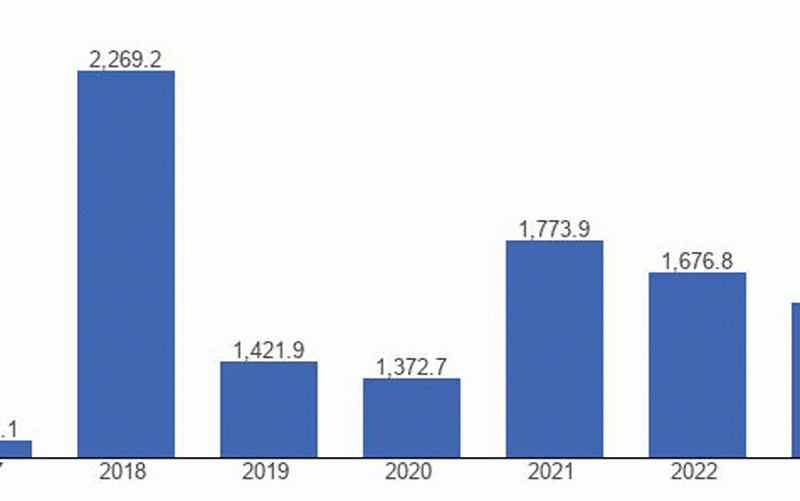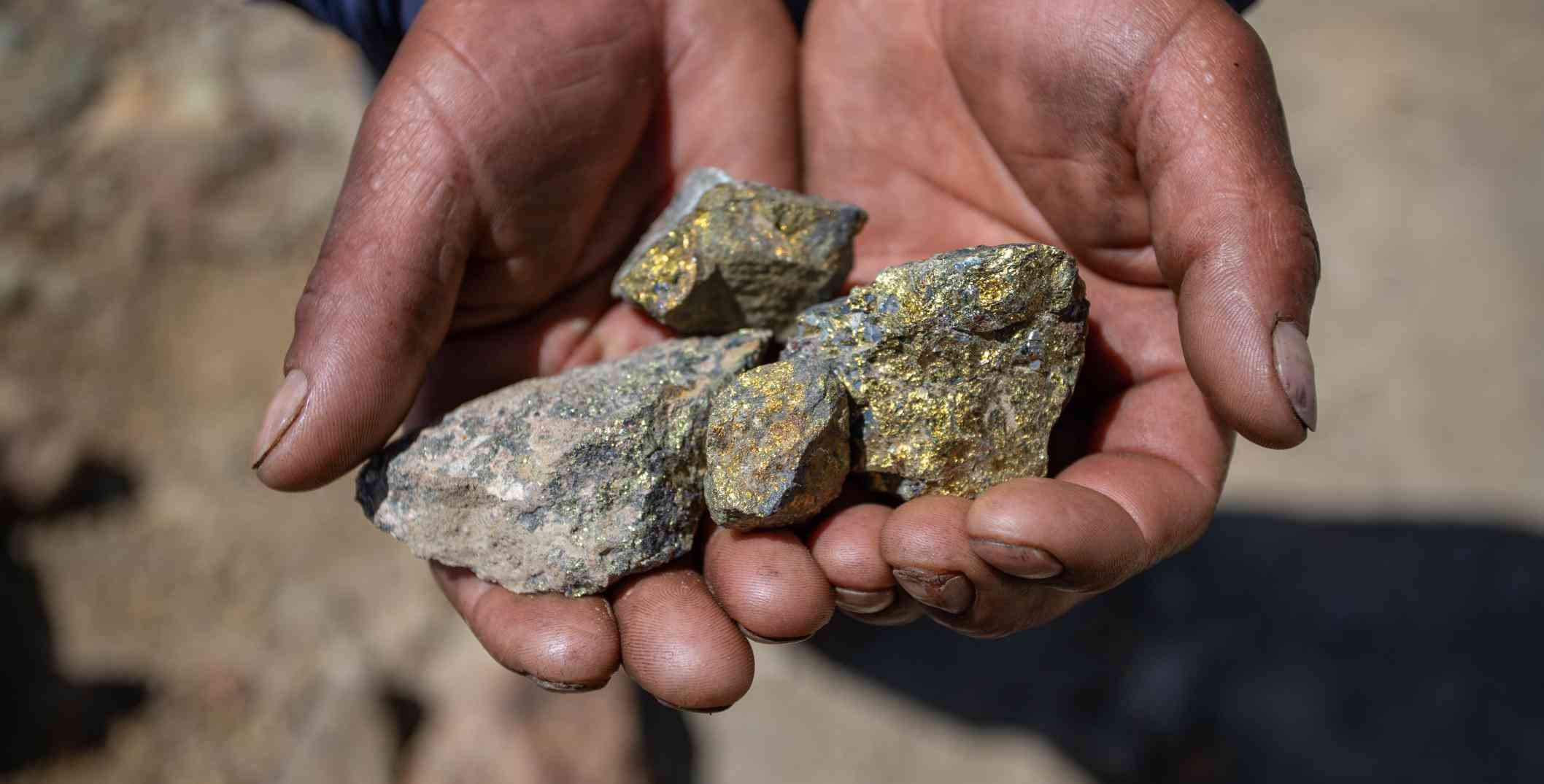
"The Zimbabwean dollar is here to stay!” declared President Emmerson Mnangagwa at one of his pre-election campaign rallies.
Under normal circumstances no one would take exception to that “declaration”.
And yet the Zimbabwean situation is not only abnormal, but unsustainable by any reckoning.
The banks have no money to do business with their clients.
As to the reason or causal factors of the shortages anyone can guess pretty correctly without much ado. Zimbabweans “have” money, yes! But only on paper and printed figures.
In reality they don’t have any.
The situation in the country is dire. Dog eats dog; literally. Satsha!
First, the country has three currencies as “legal” tender, all of them so scarce as water in the desert.
- Mayhem as schools reject Zimdollar fees
- Forex demand continues to fall
- USD fees: Govt policy failure hurting parents
- Zimdollar shortage hits the country
Keep Reading
I don’t blame the banks, not an iota, because they don’t mint or print money.
Presently, what the banks get from the Reserve Bank of Zimbabwe is only a spit in the face for want of a polite terminology.
Clients sleep in the queues.
In the rural areas they travel scores of kilometres on borrowed money to pay transport fare for a single trip hoping to withdraw cash from the bank only to draw a zero.
Then the misery starts.
One week or even forty nights sleeping in the open hoping against hope to find cash in the bank the following morning.
Now and again deposits trickle in but only in miniscule amounts; and we are talking about the US dolalr: forget about the local currency which the president says, with gritted teeth, is here to stay.
Then the queues begin outside the banks and jostling, pushing and shoving become the order of the moment as tempers flare.
Men and women young and old and the aged who cannot remain standing for 10 minutes, get stuck together flesh to flesh save for the clothes they wear.
What a sight! What a feeling! Human beings are not supposed to conduct their lives in this manner.
No! I cannot put my “front” flesh to flesh on the back of a female who is not my wife, who could be another man’s wife of the age of my daughter or of my granddaughter, just for the sake of making a cash withdrawal from a bank or even to purchase food or receive food and other handouts especially from politicians.
I am a human being, God’s own special creation (creature) in his own image. There is something awry with us Africans.
We can easily refuse to be treated inhumanely. We are docile and submissive and truckling.
Anyway, the drama in the queues outside goes on.
Inside, the deposits were only enough for a handful of clients.
“We don’t know when to expect another CIT Vehicle...” says the bank official. At home hunger has become a permanent guest.
Medication has to be purchased, school fees have to be paid although Section 27 of the constitution of Zimbabwe forbids the payment of fees up to tertiary level education.
Zimbabwe as a country is one of its kind in the world.
Can we employ the Latin phrase “sui generis”, perhaps in the negative sense?
Those who create conditions of abject suffering for us are themselves having fun time on easy street and well ensconced in their exclusive domains of power with their families, their loquacious croines and camarillas.
By the way I am one person who recognises, appreciates and respects leaders and the leadership which they provide.
However, it is by the same token that l reject being treated as sub-human.
As little and as valueless as our money is, and I am referring to our Zimdollar specifically, it goes through innumerable grab maniacs before it actually lands into my hands, albeit for a flitting moment.
Each shop or place of business transaction charges its own rate when payment is by swiping.
This literally translates into a profit making side-kick. The banks’ tariffs have recently shot not only through the ceiling but through the roof as well.
There is also the notorious IMTT (Intermediated Money Transfer Tax).
Prices are reviewed upwards daily.
It’s all very well to grit and grate the teeth and become sulphuric and declare that the Zimdollar is here to stay, yes it will stay by presidential decree but it will not be stable and it is this instability that will continue to punish Zimbabweans by way of price hikes (inflation) and even the US dollar and the rand will find the market unfriendly and unconducive environment to operate in hence we see prices of goods charged in these currencies also frequently on the rise.
They can never maintain stability in a hostile environment especially on the political front.
We must remember that these two currencies are guest currencies in an inhospitable environment.
In a civilised, democratic political system things go wrong, yes and yet in Zimbabwe being wrong is glorified.
Our relatives in the diaspora send us money through electronic money transaction systems or transfer systems, but in Zimbabwe network for messaging the details to the recipient is not easily communicated: “We apologise for the inconvenience caused….” blah blah!
From Nkayi, from Lupane one has to travel to Bulawayo or Hwange to access one’s US$30 pension from which US$14 transport fare is deducted meaning that the net is US$16.
Does it make sense in the real world?
The opposition is zipped up about issues of such fundamental concern and impact to society.
I reiterate my definition of the word opposition: Broadly it means citizens, organisations and of course organised and coherent political parties which hold the ruling class or party to account on national issues.
They do this on behalf of society at large.
The opposition and the ruling class in a progressive and coherent democracy are not enemies, but rivals, to put it mildly.
Since 2018 to 2023 there has been a running war of words and repression and only an idiot would have expected development of any sort in an atmosphere reeking with such putrid politics.
The opposition collective is neither coherent nor broad gauged in the sense that it is not on the ground with the people to feel their collective pulse an fundamental issues such as l have a highlighted above.
Society is not a political entity as is a political party therefore its perception of national issues is invariably not the same as that of a political organisation.
When voters cast their ballot in favour of a political party they do so in expectation of fundamental change or changes. - Martin Stobart
Locating role of youth in the just energy transition
The Zimbabwe Environmental Law Association (Zela), Zimbabwe Council of Churches (ZCC), and Zimbabwe Coalition for Debt and Development (Zimcodd), recognise that investing in young people in all spheres of development is vital including involving them in the just energy transition agenda.
The three organisations hosted the 2023 Youth Symposium on October 16, 2023, a day ahead of the 12th edition of the Zimbabwe Alternative Mining Indaba (ZAMI).
The symposium featured a discussion led by youth where they highlighted the critical role, they play in advancing environmental justice.
It is without a doubt that a sustainable future can be built by optimising Zimbabwe’s demographic dividend.
In that light, it is therefore past due for society as a whole to acknowledge the influence of young and the value of investing in their future which will go a long way towards a green economy.
Welcome remarks from Zela Director Mutuso Dhliwayo, ZCC’s Secretary General Rev Wilfred Dimingu and Zimcodd director Janet Zhou, set the tone for the symposium in a positive manner.
Speaking to the issue of leaving no one behind, they emphasised that unleashing community potential and involvement is vital in the critical mineral sector and that bringing communities living in mining host towns together will help everyone, including young people and bring about change for the greater good of communities.
Youth from various communities were given the opportunity to share their personal experiences while discussions on the just transition topics took place.
I found myself considering how young people might play an active role in a just energy transition as a result of this entire dialogue, and this has prompted me to contribute in writing and reflect on the recently concluded youth symposium.
I would like to start the discussion by referencing the International Labour Organisation’s definition of a just energy transition which defines a just energy transition as one that greens the economy in the most equitable and inclusive manner feasible for all parties involved, creates adequate employment opportunities, and leaves no one behind.
This promotes a purposeful green strategy that is based on a holistic approach to economic resilience, social equality, and environmental sustainability[1]
During the discussions, a lot of valuable information was shared that I believe would be very beneficial to me and my fellow environmentalists as we work to promote a green economy.
The Youth Symposium, in my opinion, was a notable event that demonstrated how young people can contribute to a fair energy transition. Here are some of the main points raised on the role that youth play in this discourse.
- In order to contribute to the transition to green growth, the youth can effectively exploit rising digital penetration and deploy these technologies to improve climate change advocacy and governance across interest groups.
- Young people can participate in peer-to-peer learning to encourage interdisciplinary collaboration, which will boost cross-pollination of ideas and can result in holistic and integrated approaches to just transitions, taking into account environmental, social, and economic factors.
- Youth are eager to learn new skills, which puts us in a good position to pursue green careers that help preserve and restore the environment, whether in established green industries like manufacturing and construction or in brand-new, emerging ones like renewable energy
- Youth can employ innovation to generate novel responses to environmental problems, sustainable technologies, climate resilient farming techniques, or community-based renewable energy projects.
Finally, because a just transition positions everyone in society at the core of a net-zero future, involving young people in policy development, awareness programmes, and decision-making continues to have a significant impact.
Because of the knowledge we gained at the youth symposium, I believe we were very well-equipped to engage in the just energy conversation.
The road begins now, with the goal of creating a green Zimbabwe, a green economy, and a green world. — Zela










